vEGU21 - EOS7.10 - Science to Action
Posted on 28 April 2021 by BaerbelW
On Tuesday, April 27 2021 I participated in session EOS7.10 at the virtual General Assembly of the Eurogeosciences Union (EGU) titled Science to Action: Communication of Science and strategies to fight misinformation - Practice, Research and Reflection This session was convened by Sam Illingworth, Heidi Roop, Mathew Stiller-Reeve, Kristin Trimm, Laure Fallou, Irina Dallo, Michèle Marti and Femke Mulder. The session - run at both AGU and EGU - encouraged critical reflection on science communication best practices and provided an opportunity for the community of science communicators and researchers to share best practices and experiences with evaluation and research in this field. The session also explored the way efficient communication strategies can help prevent, fight and debunk misinformation. Case studies, comparisons between different hazards and risks as well as best practices to fight misinformation at all stages of the risk cycle were explored.
vPICOs
There were so many interesting 2-minute pitches that it was impossible to just pick a handful to highlight in this blog post. Therefore, the table below shows thumbnails for the presentations I was able to capture a screenshot of and links to the details from there, basically a visual directory to the session. At the end of the blog post, I'll go into a bit more details on my own contribution to highlight resources Giving Facts a fighting chance against misinformation.
Please click on the presenting author's name to access the abstract and click on the thumbnail to open a larger version of the graphic.
|
No screenshot, sorry!
|
Giving Facts a fighting chance against misinformation
For this session I created a new presentation, roughly based on my blog post "Resources to give facts a fighting chance against misinformation" but restricted to resources with direct involvement from SkS team members. Skeptical Science, FLICC, Denial101x, The Debunking Handbook, The Conspiracy Theory Handbook and Cranky Uncle all make an appearance in the slide-deck as well as on this summary slide:
Abstract EGU-337 - Giving facts a fighting chance against misinformation - full presentation (PDF 2.6MB)
Here is the 2-minute long elevator pitch for the resources highlighted:
Because there’s a lot of misinformation about human-caused climate change and many other scientific topics, people need resources to give facts a fighting chance against it. Here are some of them:
Skeptical Science is a non-profit science education organization. Our goal is to remove a roadblock to climate action by building public resilience against climate misinformation. We achieve this by publishing debunkings of climate myths as well as providing resources for educators, communicators, scientists, and the general public.
FLICC is a framework originally proposed by Mark Hoofnagle in 2007 who listed the five techniques of science denial: fake experts, logical fallacies, impossible expectations, cherry picking and conspiracy theories. These five main techniques are however just the tip of the iceberg and John Cook has gradually been building up a landscape of different techniques used to mislead.Denial101x features 60 lectures about climate science and debunking misconceptions.
The FLICC-Poster “Disinformation 101” is a collaboration with klimafakten.de, the German language partner-site of Skeptical Science.
Last year Stephan Lewandowsky and John Cook published The Conspiracy Theory Handbook which provides helpful pointers about the seven traits of conspiratorial thinking.
The Debunking Handbook 2020 is considered to be a consensus publication summarizing the research into misinformation.
Last but not least, John Cook’s Cranky Uncle game builds public resilience against misinformation by explaining the techniques of science denial. It uses gameplay elements like scoring points and levelling up to keep players engaged.
This was another very interesting vEGU21 session attended by (up to at least) 84 people. Interest in effective science communication seems to be pretty high, judging from that number!
To read more about vEGU21 please check the prolog and my write-up of session EOS3.2 about climate literacy.































 Arguments
Arguments





















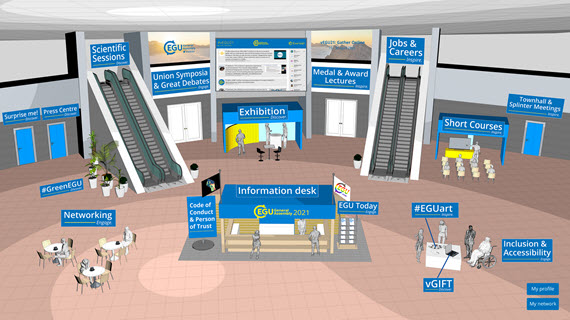
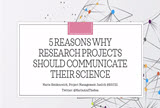


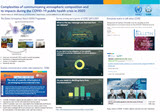

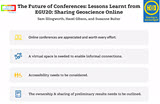











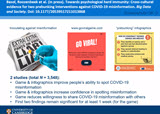
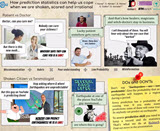

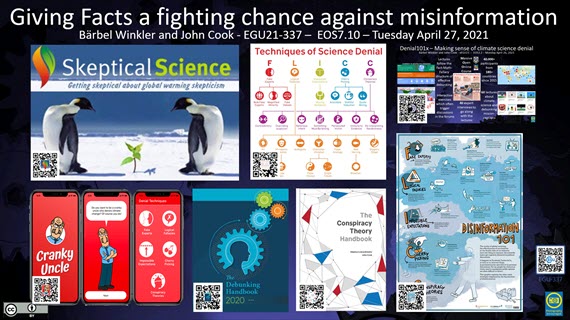









Comments